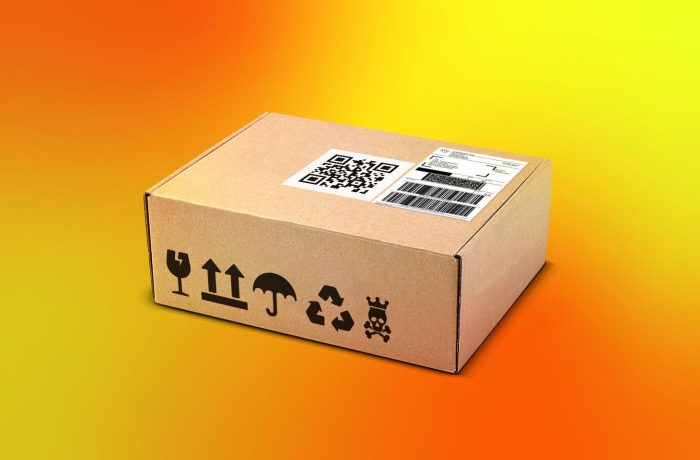Almost one in three members of Generation Alpha dreams of becoming a blogger. Today’s influencers inspire kids to create content online even before they reach their teens. Therefore, it’s critical for adults to get involved — especially when it comes to very young bloggers. Exploring digital platforms together with your kids not only helps keep them safe, but also lays a solid foundation for their confident and comfortable growth as digital natives.
To help parents, Kaspersky experts have created the Digital Schoolbag: A Parent’s Guide for the School Year (available as a PDF). It’s a compilation of essential tips to help keep kids safe online. And today, we dive into how parents can help their aspiring young bloggers.
1. Be curious — not critical
If your kid says they want to be a blogger, the safest first step you should take is not to ignore or criticize them, but to discuss this new venture together. Ask them why they want to be a blogger, and what kind of content they plan to create. This approach accomplishes two important things. One, it shows your child that you take their interests seriously — which helps build trust. And two, it gives you a natural opportunity to bring up the topic of online safety.
To make these conversations easier and more engaging, start with age-appropriate resources. If your budding blogger is quite young, a great option is our Cybersecurity Alphabet — a free book that helps kids master the basics of digital hygiene in a simple, fun way.
2. Set up accounts together
Instead of just handing your child your phone and leaving them to figure things out themselves (come on Gen-X; it’s 2025:), take the time to set up their accounts with them — whether it’s for YouTube, TikTok, Instagram, or another platform. This is a great opportunity to help your child go through these key steps:
- Choose appropriate privacy settings — for example, to control who can view their posts, comment on them, and send personal messages.
- Disable geolocation sharing.
- Use a strong, unique password.
- Enable two-factor authentication (2FA) for an extra layer of security.
This both reduces the risk of your kid’s account being hacked in the future, and teaches them good digital hygiene habits.
3. What’s better left unposted
If left to their own devices, child bloggers would probably post most anything online: where they are, what they’re up to, and who they’re spending time with. Enter the parent/guardian: teach your kid how to tell what’s safe to post and what’s potentially dangerous. Explain that they should never share their home address, school name, daily schedule, vacation plans, or places they visit regularly. These details can inadvertently make them easier to track — especially when combined with photos, geotags, and metadata.
4. Look up your kid’s usernames in search engines
Once your child begins posting under a username, it’s important to monitor their visibility and searchability. A simple way to do this is to regularly search for their username on Google or other search engines. Just type their social media handle into the search bar and see what comes up. Are there any personal photos, geolocation tags, or comments that reveal too much? Has anyone cloned their content or tried to impersonate them? Be sure to check for any of these issues.
5. Warn your child about shady online offers
When young bloggers start catching some buzz, they might receive messages from brands or accounts offering free products, sponsorships, or other collaboration opportunities. For a child, this might feel like a dream come true, but in reality, these messages are often from scammers.
Teach your child to treat every unexpected message with caution. Fake collaboration offers often arrive in email or direct messages, and may contain links to phishing sites designed to steal login credentials, personal information, or even payment-card details. Another common scam involves fraudsters promising to send a product after the blogger pays a “shipping fee” for a package that never arrives. We’ve covered these kinds of delivery scams in detail on our Kaspersky Daily blog.
A great option for young bloggers is to have their own manager or agent. Sounds very business-y and fancy, but actually a parent/guardian is the best person for this role. This way, you can work together to negotiate with brands and respond to offers from strangers. Discuss which brands are worth collaborating with, and explain why some offers may not be as harmless as they seem.
6. Talk to your kids about stalkers
As your kid gains more followers, they may attract not only genuine admirers but also individuals with malicious intent who claim to be “fans”. Unfortunately, doxing and stalking are real threats, especially for young, open, and trusting bloggers who share every detail of their lives.
Explain to your child that not everyone who seems nice is actually a good person. These “fans” often act like friends — praising content, offering help, or even pretending to share the same interests. Over time, however, they might start asking for personal details, more photos, or try to move the conversation to less secure platforms.
Teach your child to recognize these red flags:
- A stranger who messages them frequently, or who shows undue interest in them personally.
- Someone who insists on secrecy and asks them not to tell their parents.
- A person who tries to guilt-trip, threaten, or pressure them to share personal information.
Most importantly, whether your child becomes a successful blogger or not, you need to ensure they trust you, their parents/guardians, more than any strangers they meet online.
How to better understand your child blogger
Wanting to be a blogger is a form of self-expression and creativity for both children and adults alike. Your role as a parent is simple but crucial: support their aspirations, talk to them, and teach them the basics of digital safety.
- Find out what your child is into. A quick way to prepare for this conversation is to read our blog post, What kids are doing online, to get a basic idea of popular memes, games, and music.
- Install Kaspersky Safe Kids on your devices. Our app helps parents stay involved in their kids’ digital lives without being intrusive.
- Study our Cybersecurity Alphabet with your child. It explains complex concepts — like Keyloggers, NFTs, and oversharing — in simple terms.
If you want to learn more about keeping your child safe online, check out our guide, Digital School Bag: A School Year Guide for Parents.
How to make the online space even safer for your kid:
 kids
kids

 Tips
Tips